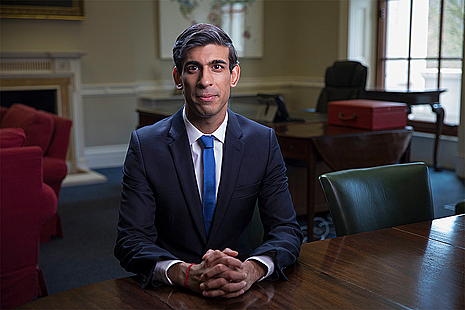
Chancellor of the Exchequer Rishi Sunak reveals the government’s Autumn 2021 budget tomorrow with a focus on UK skills, overseas investment, green shipping and pay.
Here we pool what details we know about the Chancellor’s package to be unveiled at 12.30pm.
1. £3bn investment in skills training
With skills shortages hitting the economy as it restarts following the pandemic, the government will reconfirm its commitment to a “skills revolution”.
International trade skills are in very high demand. So the Chancellor’s promised spend of £1.6bn to roll out new T-levels (equivalent to 3 A-levels, developed in collaboration with employers) for 16 to 19-year-olds, and £550m for adult skills in England, is very promising.
There will also be a further £170m for apprenticeships and training.
A new talent network to attract high-skilled workers to the UK will also be set up in innovation hotspots, starting with the Bay Area of San Francisco and Boston in the US in 2022, and also Bengaluru in India.
2. Greener shipping
Post-Brexit tax rule changes will be introduced to try to tempt more of the world’s largest shipping companies to UK shores.
Ships that fly the Union Jack and those which help the UK reach its net zero target by 2050 will both be more likely to be accepted if applying to the UK’s tonnage tax regime.
3. Beefed-up borders
According to the Northern Echo Britain’s borders will see a £628m investment “to modernise and digitalise” them with proposals including a US-style Electronic Travel Authorisation for visitors wishing to come to the UK.
4. Encouraging overseas investment
The Guardian reports that Sunak will launch a £1.4bn Global Britain Investment Fund to funnel money into key innovative sectors by providing grants to encourage “internationally mobile” companies to invest in the UK’s critical industries, including life sciences and automotive.
Life sciences manufacturing will get a £354m boost to increase resilience for future pandemics, and more than £800m will be invest in the production and supply chain of electric vehicles, including in the North-East and Midlands.
“We want to make the UK the best place in the world to start, grow and invest in a business,” the Chancellor said.
5. Northern Ireland SMEs
Northern Ireland businesses have had to cope with new rules for moving goods from Great Britain and vice versa, since 1 January 2021 when the period for transitioning from the EU ended.
The BBC reports SMEs in the province are set for £70m in funding from the budget, building on the British Business Bank’s existing programmes and as part of the government’s levelling-up programme.
The Chancellor described Northern Ireland as a “powerhouse of ingenuity”.
6. Pay up
Sunak will announce an increase to the national minimum wage of 6.6% to £9.50 an hour. Five million public sector workers will also get more in the pay packets as he ends a year-long pay freeze, reports the Guardian.
7. Wages rise, but inflation too
A minimum wage increase is set to add around £1,000 a year to the pay packets of those on full-time minimum wage. However energy and food prices are on the rise and tax rises are due to kick in next April.
The FT reports Labour comments that for many people much of any increase “will be swallowed up” by tax increases, welfare cuts and soaring energy bills.
Consumer price inflation dipped to 3.1% in September, but Huw Pill, the Bank of England’s new chief economist, has warned it will hit 5% early next year.
8. Petrol prices: tax on hold?
Of interest to the goods transport sector, petrol prices hit their highest level since 2012 this week. For this reason, the Chancellor is expected to hold fuel duty at 57.95p per litre for the 12th year in a row.
9. Transport
Nearly £7 billion will be given to areas such as Greater Manchester, the West Midlands and South Yorkshire for projects ranging from tram improvements to introducing London-style improvements in infrastructure, fares and services, reports the FT.


